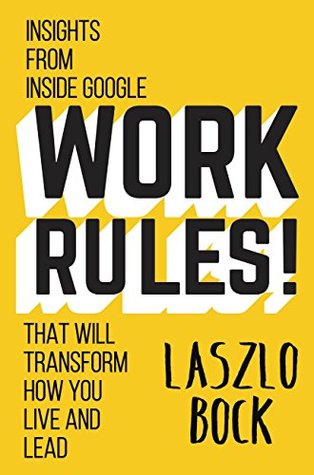More on this book
Community
Kindle Notes & Highlights
by
Laszlo Bock
Read between
May 3 - June 7, 2020
If you start a company or team, you know exactly what you are looking for in a new hire: someone just as motivated, clever, interesting, and passionate as you are about the new venture. And the first few people you hire will meet that standard. But they in turn won’t uniformly hire to the same standard as you, not because they are bad or incompetent people, but because they won’t have precisely the same understanding of what you are looking for.
Each generation of hiring will therefore be a slightly poorer version of the hiring done by the prior generation. As you get bigger, there will also be more temptation to hire a friend or customer’s child to help them out or build the relationship. These are almost always a compromise of quality.
And while people who win these contests can be brilliant, it’s often only in one field. Or they are accustomed to solving problems with finite ends and clear solutions, rather than navigating the complexity of real-world challenges. That’s an issue at Google, where we look for people who can not only solve today’s problems, but can also solve whatever unknown problems may come up in the future.
But in 2010, our analyses revealed that academic performance didn’t predict job performance beyond the first two or three years after college,
Bad performers and political people have a toxic effect on an entire team and require substantial management time to coach or exit.
“The reality is, there are some employees you should get rid of, but the goal of recruitment should be to have no such employees!”
In fact, sixteen years later, about one-third of the original hundred hires are still at Google.


